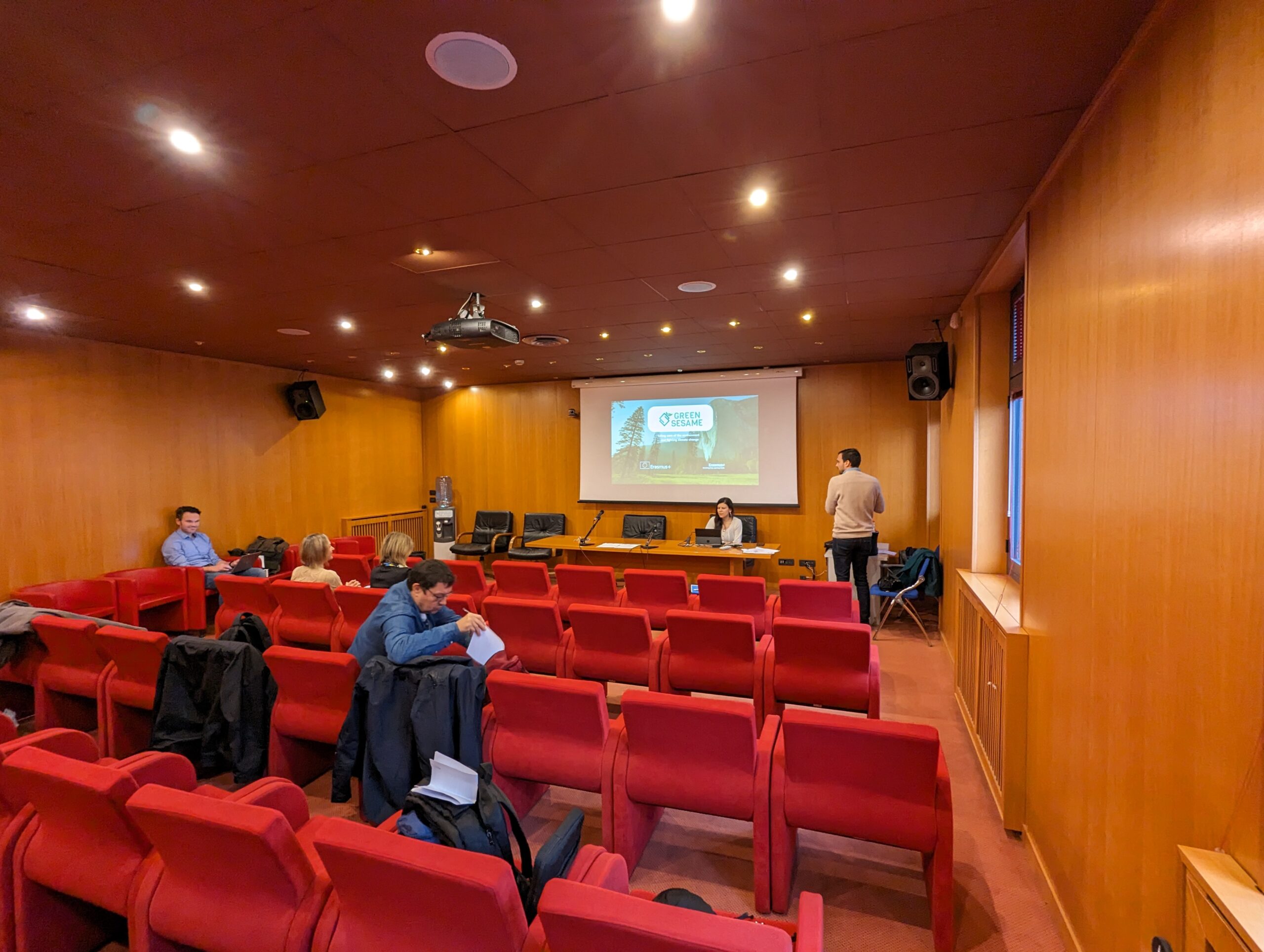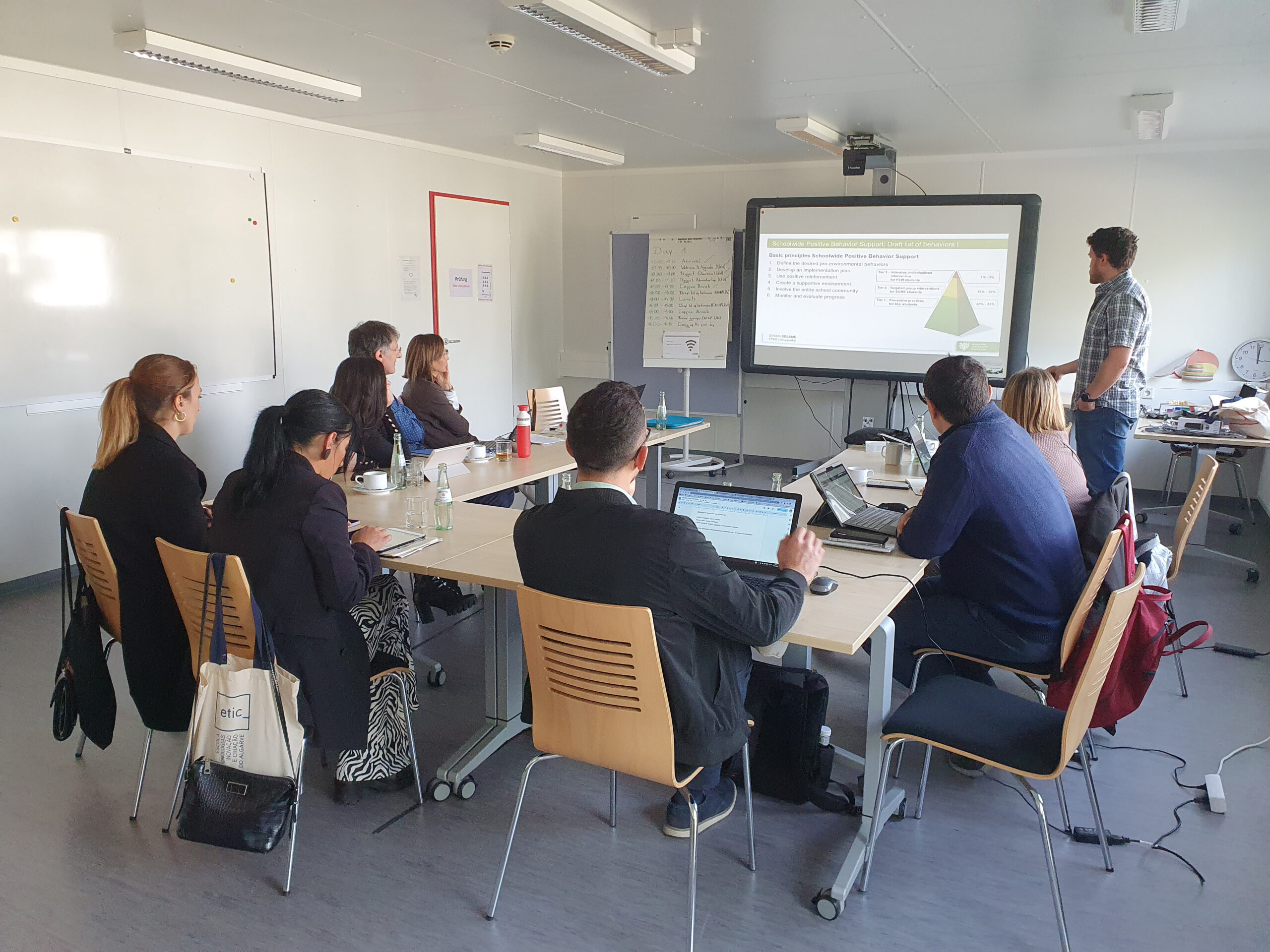
welcome to green sesame!
News
AbouT the Project
A strong connection to nature significantly impacts the psychosocial health of children and adolescents, influencing both mental well-being and cognitive development. It also has positive effects on social connectedness, stress reduction, and emotional mood. Encouraging contact with nature is essential for resilience and preventing externalizing behavior disorders in school-age children. To address this, schools must adopt pedagogical approaches that facilitate nature exposure and educate students on responsible and sustainable interaction with the environment.
Promoting responsible interaction with nature relies heavily on pro-environmental behavior, which is influenced by social and personal factors that vary across cultures. One established school-based approach for promoting positive behavior based on social-cultural norms is Schoolwide-Positive Behavior Support (SW-PBS). SW-PBS integrates research from school development, special education, and school mental health to improve students' behavioral outcomes across multiple levels.
It defines core values and behavioral expectations at Level 1 for all students and provides tailored support at Levels 2 and 3 for those who struggle with desired behavior. While existing concepts address prevention of behavioral disorders, there is an opportunity to develop SW-PBS strategies for promoting pro-environmental behavior, given its potential impact.
The GREEN SESAME project develops an innovative adaptation of the School Wide Positive Behaviour Support (SW-PBS), promoting the development of pro-environmental behaviours in students. Teachers will be upskilled to educate for a responsible and sustainable interaction with nature, based on the use
of a tried-and-tested APP and webAPP.
OUR GOALS
1) Identification of cultural factors influencing pro-environmental behavior in the partner countries since pro-environmental behavior is influenced by different cultural, personal and social factors, we first want to examine these factors and develop a matrix of these influencing factors for the partner countries. This matrix is then used for the development of the SW-PBS approach.
2) Development of a SW-PBS approach for app-based and gamified promotion of pro-environmental behavior in schools. Our current ideas for conception are as follows: At tier 1, awareness-raising activities based on a pro-environmental behavior will be developed and taught. At tier 2, teachers will work with students who are not very sensitive to the environment and carry out activities related to specific behavior of respect for the environment in which these students are lacking. At tier 3 we might work with students who have been vandalized, or who are particularly unwilling to respect the environment.
3) Development of a teacher training for the planning and implementation of the developed concept to ensure the precise and comprehensive implementation of the concept in schools, we are developing a teacher training course that qualifies the pedagogical staff in schools in the application of the concept. This training takes into account the cultural characteristics of the partner countries.
4) Piloting and evaluation of the developed concept regarding the development of pro-environmental behavior, increasing contact with nature and reducing the externalizing behavioral problems of students.
WHO GREEN SESAME PROJECT IS FOR?
-students (11-14 years) will be given the role of “agents of change”, the APP will also be opened to parents and adult people and this will likely lead to a change in their attitudes
- schools the greening of the school ecosystem will be the results of the commitment of the whole school community
- VET (Vocational Educational and Training) centers, civil society organizations, youth, universities and sport organizations
- Citizens in general


